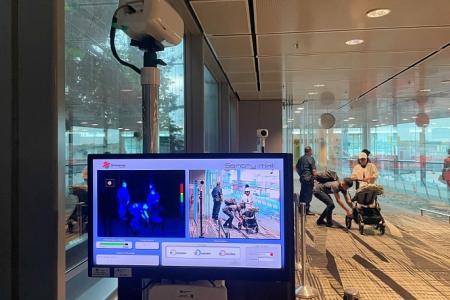Mpox likely to be more troublesome than disruptive
For Singapore, mpox will likely be “a troublesome virus which we can manage, without major disruptions to our daily lives” Health Minister Ong Ye Kung told Parliament on Sept 9.
He was responding to six MPs who had asked about measures Singapore is putting in place to protect people against this epidemic.
Explaining, he said the disease is spread largely through close physical contact. The virus is not airborne, and “does not spread far and wide like Covid-19”.
The spread of the disease is about 12 times slower: 10 people with mpox will spread it to 13 others, whereas 10 people infected with Covid-19 would spread it to 50 others.
While there are border measures in place, such as declaration of mpox symptoms, as well as temperature and visual screening at both air and sea checkpoints, Mr Ong said that given the up to 21-day incubation period, “cases may not be picked up at the borders”.
So doctors here have all been asked to be alert for mpox symptoms. Suspected cases will be taken to hospital where they will be tested, and if proven to have mpox, will be isolated till they recover. Their close contacts would be quarantined for 21 days from their last exposure to the infected person.
Mr Ong added that hospital facilities, including intensive care units, are adequate for this.
Population vaccination will not be necessary, so they will be given only to close contacts and healthcare workers who might be at risk. As such, Singapore’s supply of the smallpox vaccine JYNNEOS, which also protects against mpox, should be sufficient for its needs.
Nevertheless, in order to strengthen the nation’s preparedness and resilience, the Ministry of Health (MOH) plans to buy more doses “when available”, said Mr Ong.
He said: “Since smallpox vaccination was required in Singapore up till early 1981, there will be some immunity among a large segment of Singaporeans aged 45 and above.”
To date, Singapore has had 15 mpox cases in 2024. They were all the milder clade 2, and not the clade 1 of the current outbreak, although Mr Ong said people should expect clade 1 to arrive here at some point.
But even when it does come, the fatality rate is likely to be lower than the three to four per 100 recorded for the current pandemic, as there are likely many unreported cases, he added. Singapore also has better quality healthcare.
He said the high rate of deaths in children is due to socioeconomic reasons “and we believe that the outcomes will be different in countries outside of Africa”.
Still, contingency plans have been worked out with the Education Ministry and the Early Childhood Development Agency. Schools also have existing protocols to manage outbreaks such as hand-foot-and-mouth disease. These protocols are relevant to an mpox outbreak.
In answer to a follow-up question from Ms Hany Soh (Marsiling Yew Tee GRC) on whether there should be closer surveillance in close living environments such as army camps, old folks homes and foreign worker dormitories, Mr Ong agreed that it would be a good idea.
The mpox epidemic has infected more than 20,000 people and killed more than 600 people in 2024, largely in the Democratic Republic of Congo. It was declared a public health emergency of international concern by the World Health Organisation on August 14.
Get The New Paper on your phone with the free TNP app. Download from the Apple App Store or Google Play Store now


